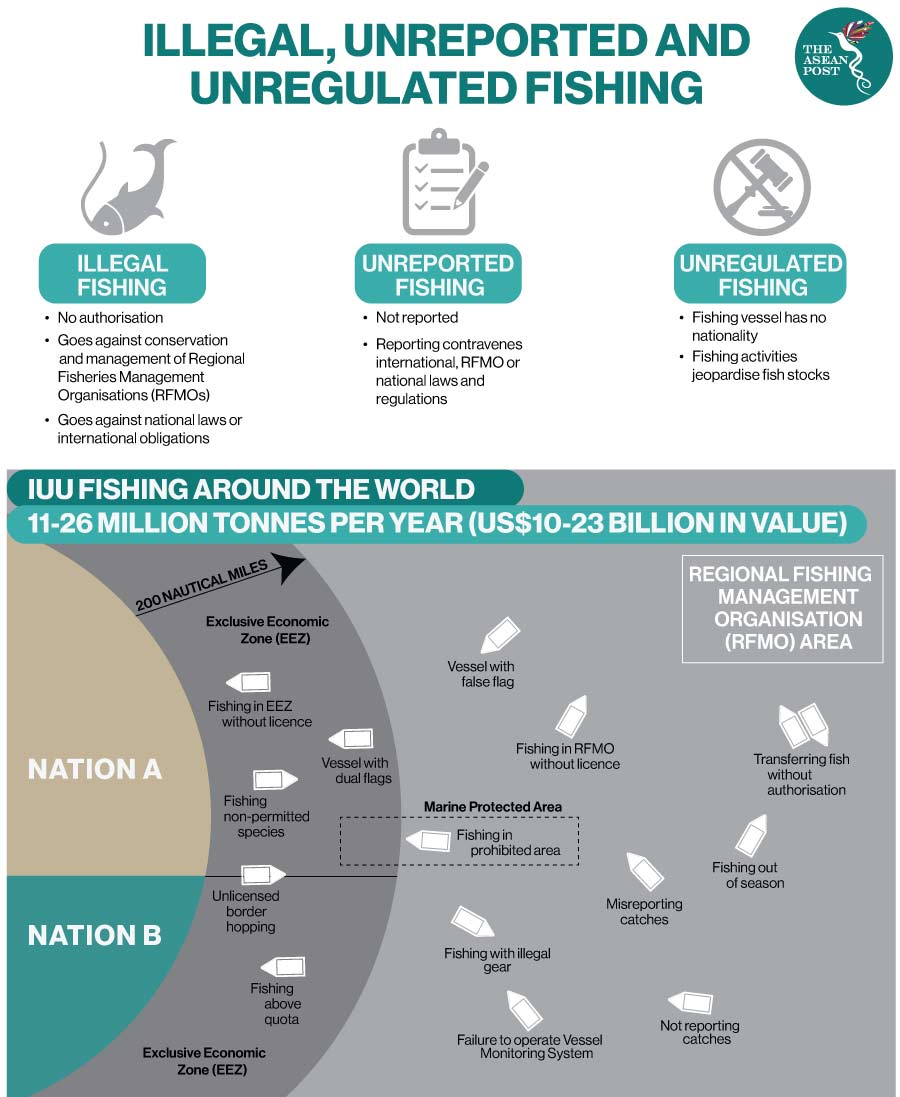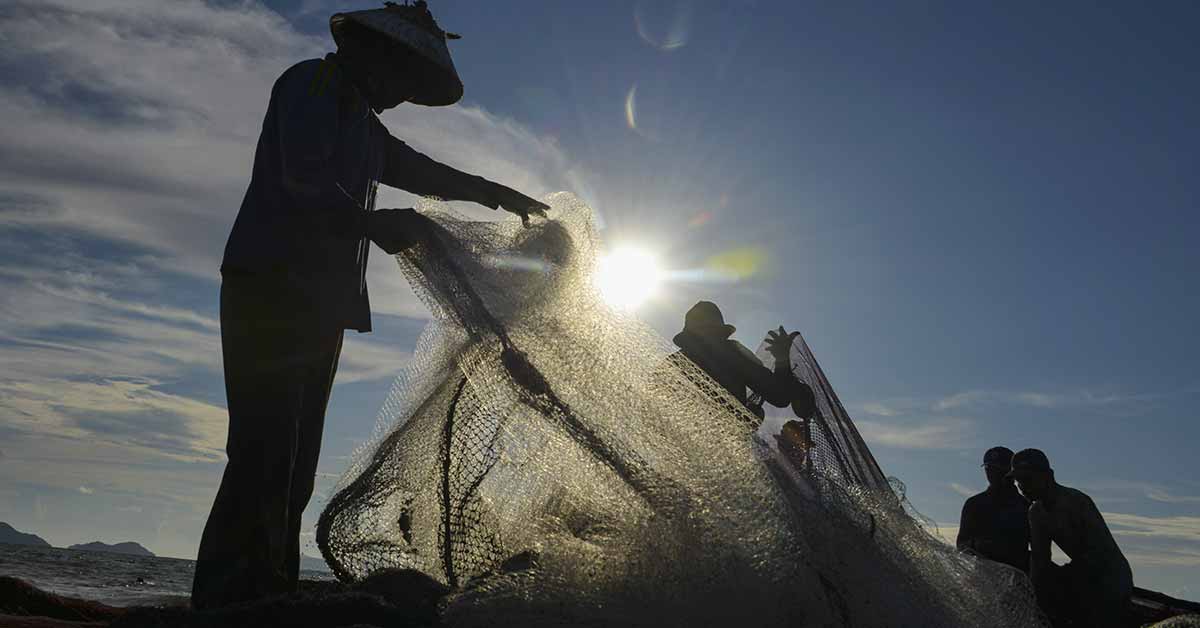In football, the yellow card is a warning for a player to behave himself as he may get sent off the pitch if he receives a second one – and a subsequent red card. It seems this system works just as well when it comes to combatting illegal, unreported and unregulated (IUU) fishing.
The European Union (EU) is the world's largest import market for fisheries products and it has estimated the global value of IUU fishing to be around US$11- to US$22 billion per year. Between 11- and 26 million tonnes of fish are caught illegally a year, accounting for at least 15 percent of the world’s catches.
With the aim of making sure no IUU fisheries products end up on the EU market, the European Commission (EC) enacted tough legislation against IUU fishing in 2010 which identifies marine fisheries products by their exporting state or the flag under which shipping vessels operate. It holds these countries accountable for IUU activities within their jurisdictions and regularly issues a list of IUU vessels based on information provided by regional fisheries management organisations (RFMOs) – international organisations formed by countries with fishing interests in an area.
Countries that disregard IUU fishing are first put on notice and issued a yellow card. At this stage, called pre-identification, the EC will open a formal dialogue with the state and observe the situation for at least six months. If the country shows improvement in its anti-IUU fishing efforts, the observation period will continue until the yellow card is eventually rescinded.
Countries that do not show satisfactory progress after the monitoring period are identified or categorised as uncooperative and issued a red card. Marine products from these countries are banned from entering the EU. The final state is the blacklist, which prohibits fisheries products caught by all fishing vessels operating under that country’s flag. EU fisheries companies are also banned from operating in those countries.
In 2016, ASEAN member states jointly declared war on IUU fishing and pledged to enhance sustainable fishing in the region during the ASEAN-Southeast Asian Fisheries Development Center (SEAFDEC) regional cooperation forum in Thailand. The association aimed to increase the competitiveness of ASEAN’s seafood industry and to comply with international standards and regulations.
At the meeting, Dr Theerapat Prayurasiddhi, then-Permanent Secretary of Thailand’s Ministry of Agriculture and Cooperatives, declared IUU as a serious threat to the sustainability of fishery resources and the marine environment. He said that combatting IUU fishing was complicated as fishery resources are shared by several countries and fisheries products are traded intra-regionally before export.

Yellow Cards
Addressing IUU fishing requires close cooperation between agencies in various countries. Monitoring, control and surveillance (MCS) programs need to be strengthened, and the traceability of fish and fishery product sources need to be enhanced at the risk of more ASEAN countries getting yellow cards from the EC.
According to media reports, the three areas in the region prone to IUU fishing include the Gulf of Thailand, Indonesian waters and Malaysia’s exclusive economic zone (EEZ). The Department of Fisheries in Malaysia stated that the country loses up to RM6 billion (US$1.4 billion) to illegal fishing every year. Nevertheless, other ASEAN member states have also reported cases of IUU.
The Philippines was yellow carded in June 2014 but managed to have it rescinded in April the following year. Cambodia received a yellow card in November 2012 and was downgraded further to the EC’s blacklist in March 2014, and all fisheries products caught by fishing vessels registered in Cambodia have since been banned from the EU.
Vietnam received a yellow card in October 2017 and it is anxious to get it rescinded as its seafood export industry is thriving. In May 2019, a special national committee was established and a deputy prime minister was given the right to direct and coordinate it. Vietnam also established the Fund for Protection and Development of Aquatic Resources and implemented many other strong long-term measures. The government has consistently and vigorously fought against IUU fishing through communication, laws, and technical measures, following recommendations from the EC delegation. Seafood exports were worth US$8.6 billion in 2019 and Vietnam has set a target of US$10 billion for this year.
Despite major plans and strategies within ASEAN to combat IUU fishing across the region as stated in the Strategic Plan of ASEAN Cooperation on Fisheries 2016 to 2020 that was adopted in 2018, illegal fishing is still rampant in Southeast Asia.
“The return on investment is lucrative and also because the vast area makes policing extremely difficult without cooperation from the member states,” explained a local media in Malaysia.
Related Articles:
